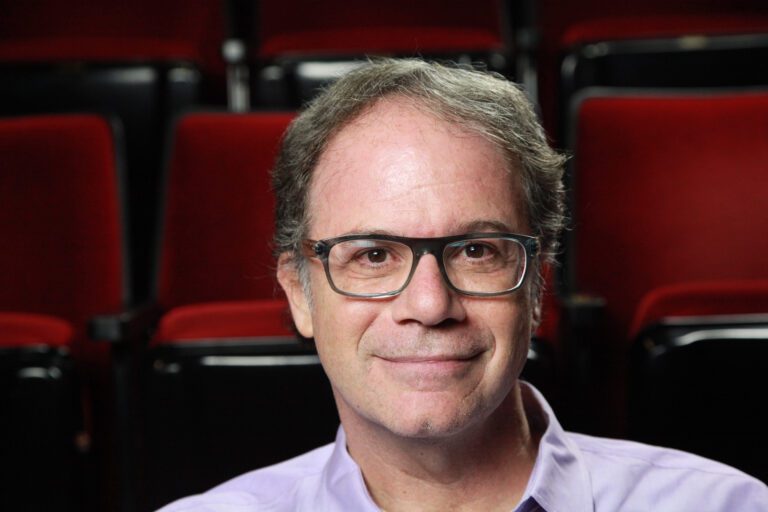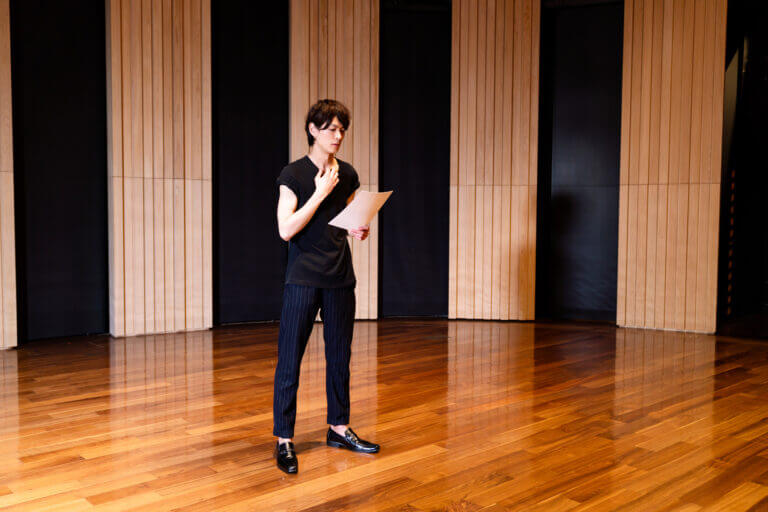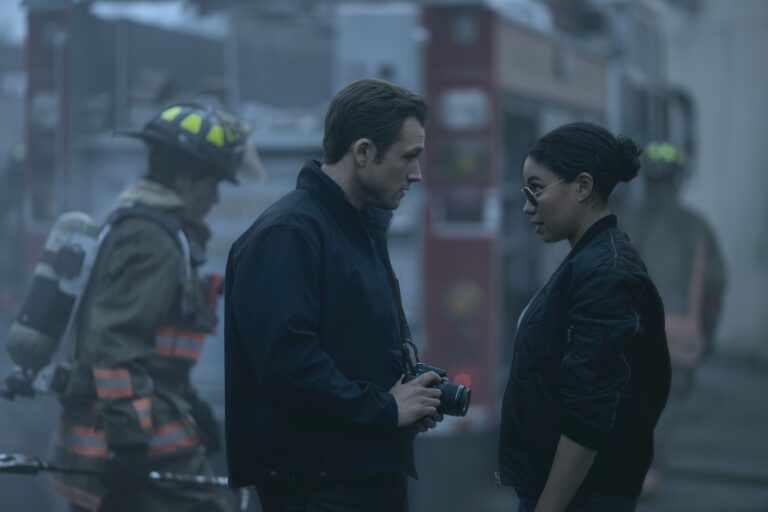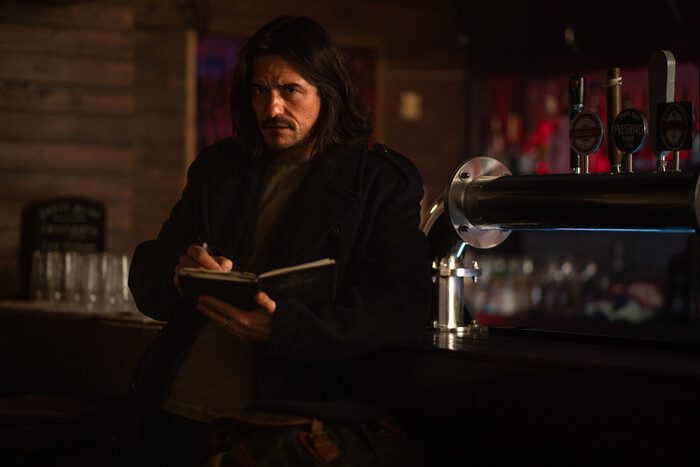Destiny Lilly has been on a pretty epic run over the last few years. The current president of the Casting Society and colleague of the legendary Bernie Telsey, Lilly has earned 24 Artios nominations in six years, including a stunning nine in 2025. That’s a pretty impressive six-year streak, let alone a very impressive year.
Lilly works alongside Telsey on Only Murders in the Building, which represented one of those nods — as well as a 2024 Emmy nomination — but eight of those nominations came from her work in the theatre, both on and off Broadway. She is one of the few major casting directors who still has a foot in both the stage and screen worlds, and it’s evident by the acclaim she receives that her fellow casting directors recognize her for it. She spoke to us from her New York office.
Insights: Lessons from Destiny Lilly
- Prepare thoroughly for auditions; focus on character understanding rather than memorization.
- Stay informed about project collaborators to tailor your approach in auditions.
- Keep auditioning in different mediums, as theater can lead to film/TV opportunities.
How did you get into casting in the first place?
Well, I love theater. I studied theater in college. I loved theater in high school. I used to go see plays as a kid, and I became interested in pursuing a career in theater. I started out directing plays and after I moved to New York, I had a couple of directing fellowships, and they were cool, but they didn’t pay very much money.
I was trying to figure out how to build a career as a director, and I had an opportunity through one of the fellowships I was doing at Ensemble Studio Theater to help with casting for a marathon of one-act plays. It was fun. I liked doing it. It was similar to directing in a lot of ways, working with actors and breaking down a script.
I liked working with actors. I liked seeing different actors come in and do things differently. I loved the energy of it. So after that, one of those casting directors recommended me for my first job in casting. That was about 15 years ago, and here I am still doing it.
There aren’t a lot of casting directors who still work in theater, while also doing TV and film.
In my first full-time job in casting, I did background casting for commercials for about two years, which taught me a lot about SAG contracts and you learn a lot very fast. It’s the last thing people are thinking about. All of a sudden it’s like, “Oh, right, we need all these background actors that we didn’t think of.”
It’s a lot of pivoting quickly, sending things out at midnight for the next day. I did that for about two years, but I always wanted to work in principal casting. While I was doing background, I was also meeting a lot of producers and people who worked on commercials who were also like, “Oh, do you want to cast my short film? Do you want to work with me on this pharmaceutical industrial?” I did tons of things to start to learn more about the acting pool, and I was always seeing theater.
Was it a gradual thing, getting into principal casting?
I started casting at smaller theaters, like in Brooklyn and uptown, and then eventually moved into doing bigger and bigger projects. About seven and a half years ago, I started working at the Telsey Office, where I get to work on a little bit of everything, which I like.
I love theater still, and I feel like that’s a place where I find a lot of actors through casting theater. I think for a lot of actors who are coming to New York starting out, the theater is one of the first places that they tend to get seen. Theater is a really good way for me to find new actors, or just actors that I haven’t seen before.
Working with Bernie, my understanding of that office is that you’re able to cast your own projects, while also working in tandem with the group of people who are all casting together and solo. Is that right?
Yes, and it’s interesting because it’s different from many offices in that there are between eight and 10 lead casting directors here. I’ll collaborate with Bernie, or with Karyn [Casl], who does plays with me, or on Only Murders in the Building, where we work with Bernie and Tiffany [Little Canfield], and Tiffany’s in Los Angeles.
It’s really great because you have so many different people to collaborate with, so you get their experience as well as yours. You get to combine your knowledge to work on things. Or if I just can’t come up with the right person for this thing, you have a whole kind of hive mind of people who can contribute ideas, which is cool.
Let’s talk about the fact that you have not one, not two, not three, not even seven or eight, but nine Artios nominations this year.
(Laughs) Thank you. It’s very cool.
How are you so good?
(Laughs) I don’t think that that’s it. I think that I happened to work on some very good projects over the last few years and had very strong collaborators. On almost all of those projects, there was someone else that I was working with in this office to help make those things a reality.
It is true, though, that I’ve been in the position to work on really good projects with creative collaborators and people who are at the top of their field. Directors, playwrights, writers, that also raises your game as a casting director, that you want to make sure that you’re matching that and bringing everything you can to the table.
All of that is fair, and I appreciate the instinct towards humility. However, nine is an insane number of nominations in a single year. When nominations came out, did you look around and say, Wait, really?
Yes. I definitely did a, “Oh. Oh. Ohhhh. Oh yeah, okay, oh, that one too. Oh, okay.” It was a little bit of that. I was like, “Oh, that’s like, nine. Wow, that’s a lot.” It’s always cool. It’s nice to be acknowledged for your work.
You’ve now been nominated for 24 Artios Awards and two Emmys. It must be enormously gratifying to have that level of respect among your peers.
It’s exciting, just because, as a casting director, a lot of the time, since our work happens pretty early in the process, by the time a film or a show is made, people forget about us. Like at the premiere, that’s maybe two years after we cast the film, or at a Broadway opening night, it’ll be like, “Oh, great, we’re congratulating everybody who’s involved, and they will leave out the casting director because we’re not at the rehearsals, we’re not in that process.”
I think that our work often gets forgotten, but is so essential. The awards are nice in the sense that it’s a reminder of our contributions, and that they are important. It’s nice to be acknowledged in that way.
Eight of your nominations this year are for theater. Do you think you’ll continue to cast the stage?
I think so. I feel like it keeps me sharp. The person that you see for this indie film might be right for this theater project, and the person that you saw for a musical might be right for the film or the TV show.
I feel like doing all three allows me to stay current and see who’s out there, and then there’s always still more people to see. There are new actors every day. So doing theater, I think, is a good way to keep seeing new people.
One of the side effects of doing so many projects is that you must do enormous amounts of auditions. Are there common mistakes that actors make there?
Yes. I love auditions. I think it’s hard for actors, because they can be nervous, and sometimes the nerves will come out. But I think the biggest mistake that people make is forgetting to prepare and being focused on the wrong things.
I always say, especially if you’re coming in person for an audition, just to make sure that you’re prepared in the sense of what preparation is for you. And that we’re not looking for memorization.
Most of the time we’re not looking for something perfect. It’s more about, have you thought about the character? Have you made choices about this character? If you’ve been given the script, did you read it so that you can have a better idea of how to work with this character at the moment? Have you read anything about the other collaborators in the room and have a sense of who they are and what their background is? Do the research that you can so you walk into the room fully prepared, but also so you feel prepared as well. I think that’s important.
If there was one piece of advice or wisdom you could give to an actor coming in to see you, would that be it?
Yes. Do your homework.
Ready to find your next role with Casting Networks? Sign up for a free trial today!
You may also like:













